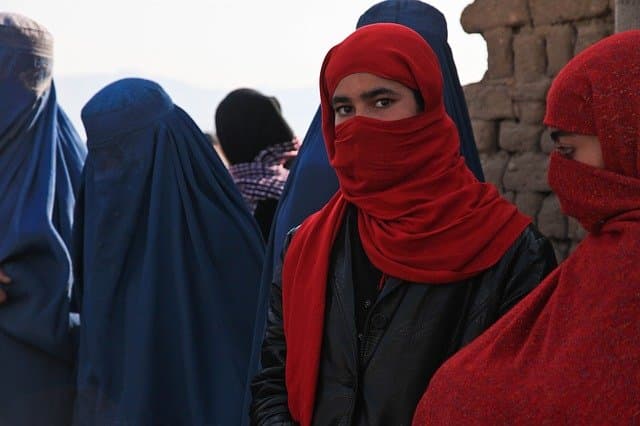I suppose I'm just old and increasingly out-of-touch, but I can still remember when most of us looked to our mainstream news media to inform us rather than to shape our attitudes in particular directions or feed us propaganda. The ideal was that they'd present the facts, and it would be up to us to figure out how to feel about them. I miss those days. It now seems like much of the mainstream news media, at least much of the mainstream cable news media, serves very different functions.
I've noticed something missing from almost all of the coverage I have seen of the U.S. withdrawal from Afghanistan, and it has to do with the odd title I've selected for this post. We've learned that the Taliban has taken over, much quicker than most seemed to expect, to fill the vacuum left by the U.S. The overwhelming consensus is that this is a bad thing. Why is it a bad thing?
"It is a bad thing because the Taliban is an enemy of the U.S." Okay, but the U.S. is far from perfect. Just because we have declared someone an enemy shouldn't carry much weight. "What about the many human rights abuses?" Yes, now we are getting somewhere! The Taliban is bad, at least in part, because of the many atrocities they have been committing (e.g., the subjugation of women, wholesale murder of LGBT persons, etc.). The list of atrocities is a long one, and I agree that this is a big part of what is so bad about the Taliban. But something has been missing from most of the mainstream news coverage of this story. Can you guess what it is? Here's a hint: what do you suppose motivates the Taliban to do many of the horrible things that they do?
The answer, of course, is Islam. The vital subject missing from far too many news reports is Islam. Yes, the Taliban brutally represses women and murders LGBT people. Yes, they are imposing something that can clearly be recognized as a theocracy. Can we hope to understand why they do these things without considering the role of Islam? Why are we hearing so little about Islam?
The answer those of us asking this question are likely to receive will be something along the lines of pointing out that the Taliban's brand of Islam is not synonymous with Islam as it exists in the West. It is not fair, they'll say, to blame Islam for what the Taliban is doing anymore than it would be fair to blame the whole of Christianity for what a handful of Christian extremists do. Perhaps they have a point. And yet, I have a very difficult time believing that we should completely disregard what the Taliban says about why they are doing what they are doing (i.e., Islam) just as I have a very difficult time going along with those who suggest that Christianity is somehow irrelevant to what Christian extremists do.
Islam is a problem. Radical Islam, Islamic extremism, Islamism, or however else one prefers to refer to it is a far worse problem than Islam; however, Islam is still a problem. And while I know we hear this sort of thing from atheists so much that it has become a meaningless cliche, there is some merit in the notion that one valuable way of learning what a religion is all about is observing what happens when fanatics of that religion gain the power to accomplish their agenda. What we are seeing from the Taliban does reflect on Islam; what we see from Christian nationalists does reflect on Christianity.
In order for our news media to inform the public about what is happening in Afghanistan and why it is a human rights catastrophe in progress, they are going to need to address Islam. Presenting their stories without mentioning Islam gives us a distorted picture. If we want to understand what is happening and why it is happening, Islam needs to be part of the conversation.
